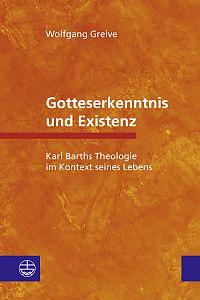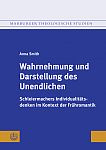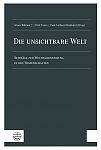Karl Barths Theologie im Kontext seines Lebens
Wolfgang Greive
Karl Barth hat die Theologie und die Kirche im 20. Jahrhundert maßgebend geprägt und wird heute mit neuer Aufmerksamkeit gelesen. Das Buch von Wolfgang Greive stellt sich der Aufgabe, Barths Theologie im Kontext seiner Lebensgeschichte zu profilieren, denn die Schärfe dieser Theologie lässt sich ohne den Wechselbezug auf die Situation seiner Biographie nicht zureichend verstehen. Greive zeigt, wie Barth die Frage nach dem glaubwürdigen Selbstverhältnis der Wahrheit auf seinem Denkweg als Lebensweg beantwortet. So sehr Barths Kampf gegen den Nationalismus und Nationalsozialismus ausschlaggebend ist, ohne den Kampf mit sich selbst kann sein Denken nicht erfasst werden. Das verlangt den Einbezug seiner persönlichsten Krise in der Notgemeinschaft mit seiner Ehefrau und Geliebten. Dass Karl Barth das Wort Gottes im Hinblick auf ein bestimmtes geschichtliches Gegenüber auslegt, zeigt Wolfgang Greive in einer erweiterten Perspektive eindrücklich. Und dass Barth mit seiner Dogmatik ein revolutionäres Potential entwickelt hat, wird ebenso hervorgehoben wie die Widersprüche in seinem Denken. Greive plädiert für ein vertieftes Verständnis der Theologie Barths als Krisentheologie.
[Knowledge of God and Existence. Karl Barth's Theology in the Context of his Life]
Karl Barth had a decisive influence on theology and the church in the 20th century and is being read with renewed attention today. Wolfgang Greive's book sets itself the task of profiling Barth's theology in the context of his life story, because the sharpness of this theology cannot be adequately understood without an interrelation to the situation of his biography. Greive shows how Barth answered the question of the credible self-relationship of truth on his path of thought as a path of life. As decisive as Barth's struggle against nationalism and National Socialism is, his thinking cannot be understood without looking at the struggle with himself. This requires the inclusion of his most personal crisis in the community with his wife and lover that was formed out of a state of emergency. Wolfgang Greive impressively shows that Karl Barth interprets the word of God with a view to a specific historical counterpart. Also emphasized is that Barth developed a revolutionary potential with his dogmatics, as are the contradictions in his thinking. Greive argues for a deeper understanding of Barth's theology as crisis theology.
Zum Autor
Wolfgang Greive, Dr. theol., Jahrgang 1943, studierte Theologie in Frankfurt, Göttingen und Mainz. Nach seiner Promotion bei Wolfhart Pannenberg arbeitete er als Pfarrer in Rüsselsheim, dann als Assistent bei Pannenberg in München und war später Dozent für Systematische Theologie an der Theologischen Akademie in Celle sowie Studienleiter an der Akademie Loccum. Nach seiner Habilitation war Greive als Theologischer Referent des Lutherischen Weltbundes in Genf und als Ökumenebeauftragter der Hannoverschen Landeskirche tätig.






